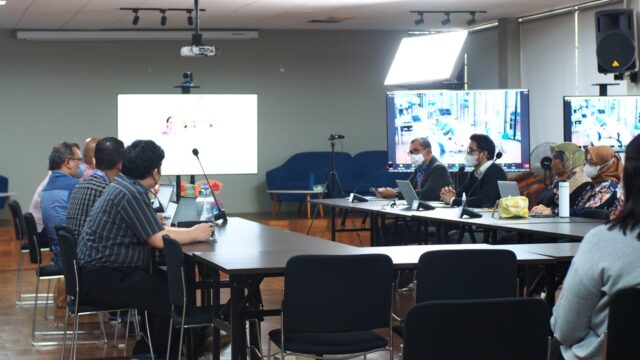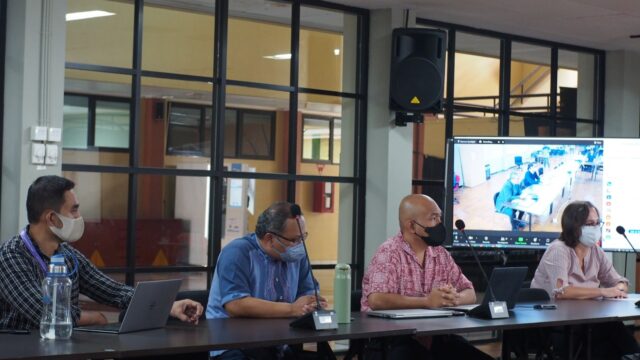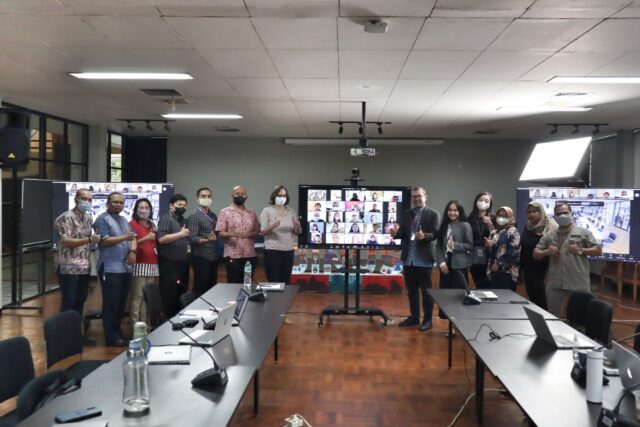Masterclass on How to Write a Research Article in Social Science and Humanities
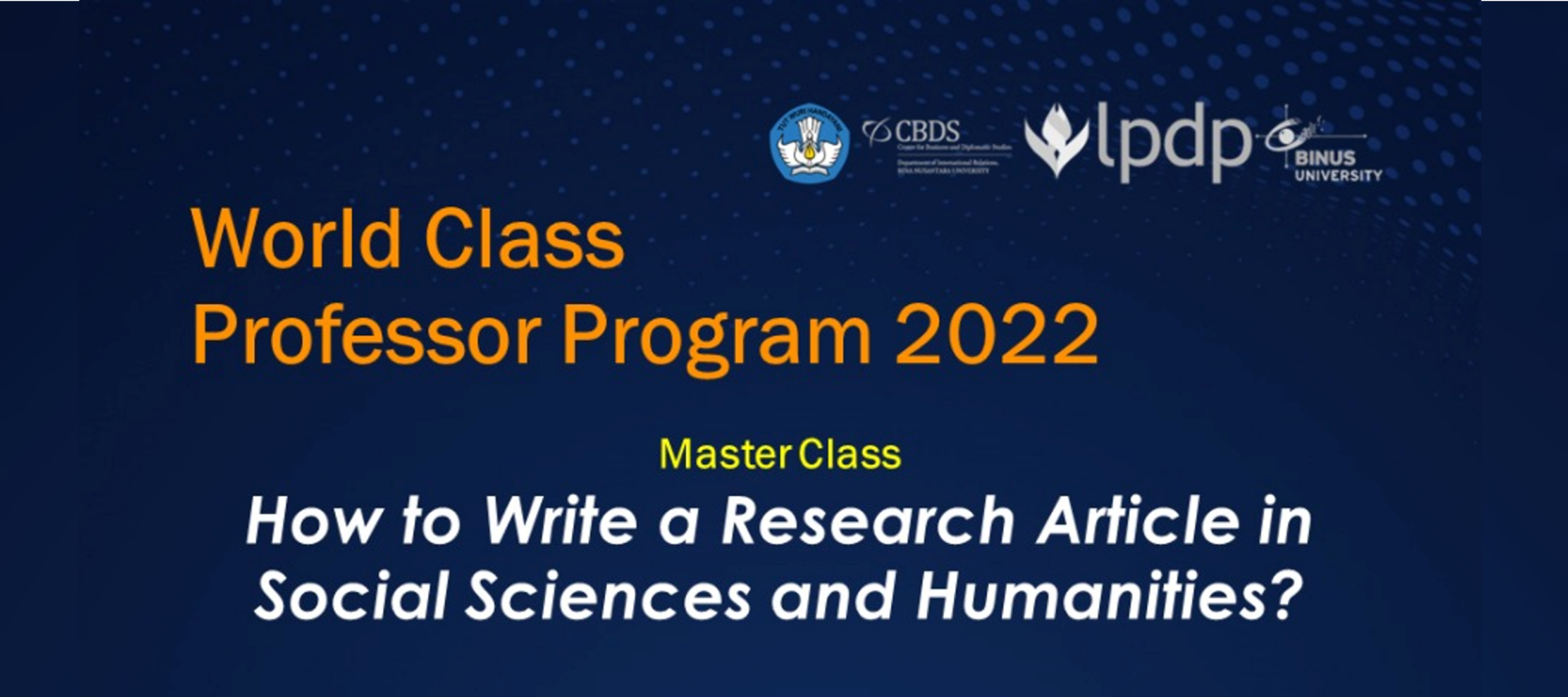
On Thursday 29 September 2022, the Department of International Relations held a Masterclass on How to Write a Research Article in Social Science and Humanities, in collaboration with Prof. Lena Rethel Chief Editor of the Review of International Political Economy Journal of the University of Warwick. This event was held on a hybrid basis with financial support from the Directorate General of Indonesian Higher Education (DIKTI). This event is part of the IR Binus’ World Class Professor Program 2022 which is held with Binus University’s Center for Business and Diplomacy Studies (CBDS).
The event was opened with remarks from the Vice Rector for Research and Technology Transfer at Binus University, Prof. Tirta Mursitama and Head of the Department of International Relations at Binus University, Rangga Aditya, Ph.D. A total of more than 200 participants joined via the Zoom platform.
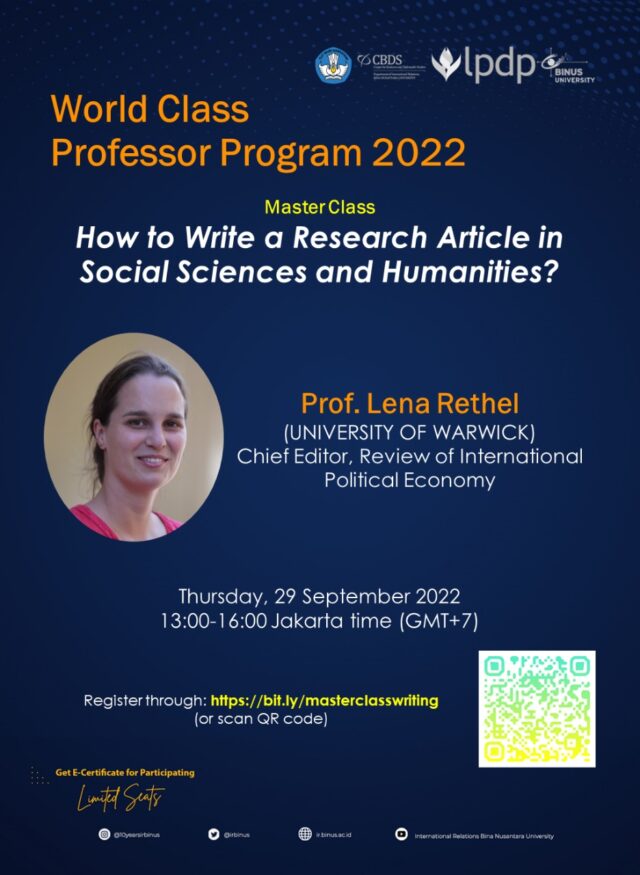
Prof. Rethel focuses mainly on strategies for publishing works in social sciences and humanities. In his presentation, “How to get published in the Social Sciences and Humanities?”, prof. Rethel explained that publishing research work is a different skill set from writing and research. Some of the important skill sets in publishing research works according to prof. Rethels include:
- Get to know the journal – check the “aims and scope” and “instructions for authors”
- You may consider acting as a reviewer for the journal
- Follow the journal on Twitter for updates on new articles etc.
- Once you have decided on the journal, make sure you clearly articulate your contribution to the field
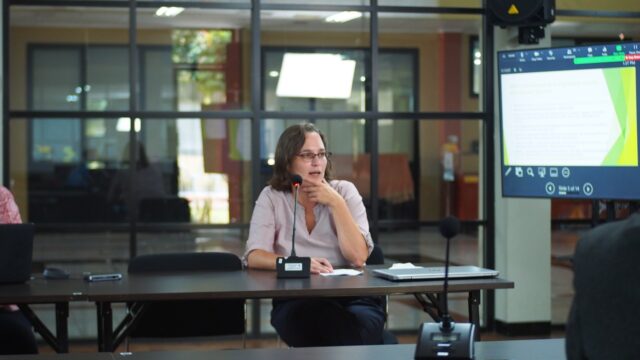
In addition, Prof. Rethel provides a number of practical suggestions in dealing with the review process when an article has been submitted to a publisher. Some of them are ready to face a review process that will involve many revisions and strategies for dealing with rejection. Prof. Rethel also emphasized the importance of building networking by checking out the major research centers and clusters in your area of research because “some of them might offer opportunities for honorary affiliation” and “or they might invite you to present your work in their research seminar series.”
